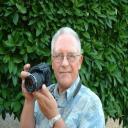Yahoo Answers is shutting down on May 4th, 2021 (Eastern Time) and beginning April 20th, 2021 (Eastern Time) the Yahoo Answers website will be in read-only mode. There will be no changes to other Yahoo properties or services, or your Yahoo account. You can find more information about the Yahoo Answers shutdown and how to download your data on this help page.
Trending News
Photography: Which type of camera is best?
I'm very interested in photography and plan to buy a camera soon. I have a friend that uses a Nikon D300, and the pictures seem great to me. But then I've also looked at a Nikon D60 and Canon 450D. Any advice on the cameras I've mentioned? Or suggestions on other cameras? I'd appreciate any help on this considering they're quite expensive!
4 Answers
- Jim ALv 71 decade agoFavorite Answer
The first thing to remember is that the photographer is the true difference in the composition and overall quality of any photograph.
Next, a DSLR at 6mp will out shoot any point and shoot camera all day long.
So, forget the pixel count because it's really a combination of optics (the lens), processing inside the camera, sensor quality and pixel count.
Pick a camera you like (I prefer Canon) and try it on.
Good Luck
- EclipseLv 61 decade ago
The Nikon D300 is really a borderline pro-level camera. If you've got the money and need/want the features and speed that comes with it, go for it. It's a great camera and one I've thought about often even though I opted for the Canon 40D when I was looking back in 2007. The 40D could match the D300 for speed and the $600 price difference in favor of Canon paid for a second lens. That second lens has been way more important to me than any of the features I liked on the D300. I'll be using my lenses for the next decade but I may very well be replacing my 40D that became obsolete when Nikon announced the D300 just days after my camera hit the market. With that in mind, I'm glad I spent that extra bucks on lenses rather than cameras that are often obsolete within months of being announced.
Having said all that, Nikon now offers the D90. The D90 has the same sensor as the D300 and is compatible with all the same lenses at just over half the cost of a D300. For $1000, you get the same image quality as the $1800, D300 plus HD video capability that is not present on the D300. The most significant feature missing from the D90 is the D300's 51-point autofocus system but, before that system came along, lots of professional Nikon shooters did just fine with the 11-point system used in the D90.
The Nikon D60 is almost as good as the D90. It can't provide autofocus with quite as many lenses but, that's only important if you have older AF or AF-D series lenses. Otherwise, the camera is compatible with almost every Nikkor lens made since 1959, just like the D300 and D90.
On the Canon side, the EOS 50D lands between the D90 and D300. As I mentioned, I own the 50D's immediate predecessor, the 40D. These cameras are as fast as D300 in it's standard form but as was the case when I bought my 40D, the D300 is $600 more expensive than the 50D and 800$ more expensive than the 40D. As I mentioned before, that extra money paid for a very nice, near pro-quality, EF-s 10-22mm f3.5-4.5 USM lens that I use a lot more often than I'd use a 51-point auto focus system.
There's also the EOS 450D that you mentioned. It's a great camera to start with and image quality is at least as good as that of the 40D which is a semi-professional camera. The 450D has one less command dial but you still have all the primary controls you'd find on the more expensive 40D or 50D. The 450D gives up nothing in lens compatibility compared to the 40/50D. All Canon EF and EF-s lenses are compatible with the entire line of Rebel series cameras from the 300D to the current 500D.
In the end, all of the DSLR cameras from Canon and Nikon provide the same basic capabilities with respect to shooting in programmed exposure, aperture priority, shutter priority, and manual exposure modes. All allow you to adjust white balance to correct for lighting and you have the choice of shooting JPEG or RAW for the most freedom in post processing.
In the end, all you have to decide is which you like best and how much money you want to spend on the lenses you'll use for years versus a body may already be obsolete by the time you buy it and has relatively little impact on the quality of your images. I recommend you go to a camera store and try them all. See which features you like and/or need. See which camera's controls and menus are easiest for you to use. Canon and Nikon are of equal quality so you can't go wrong either way.





